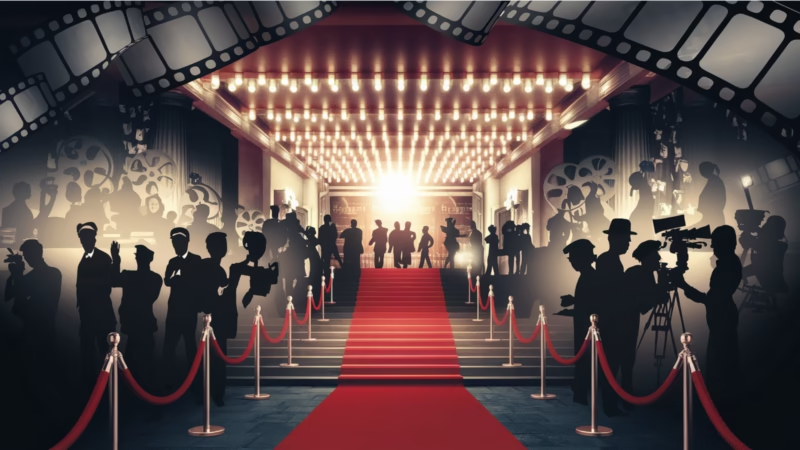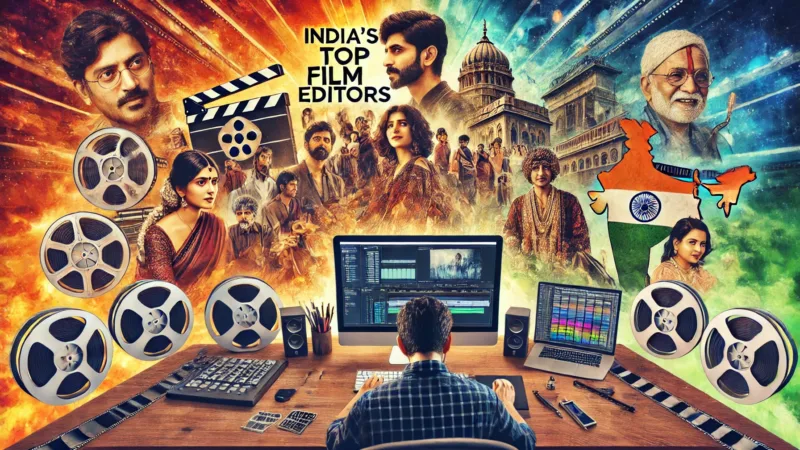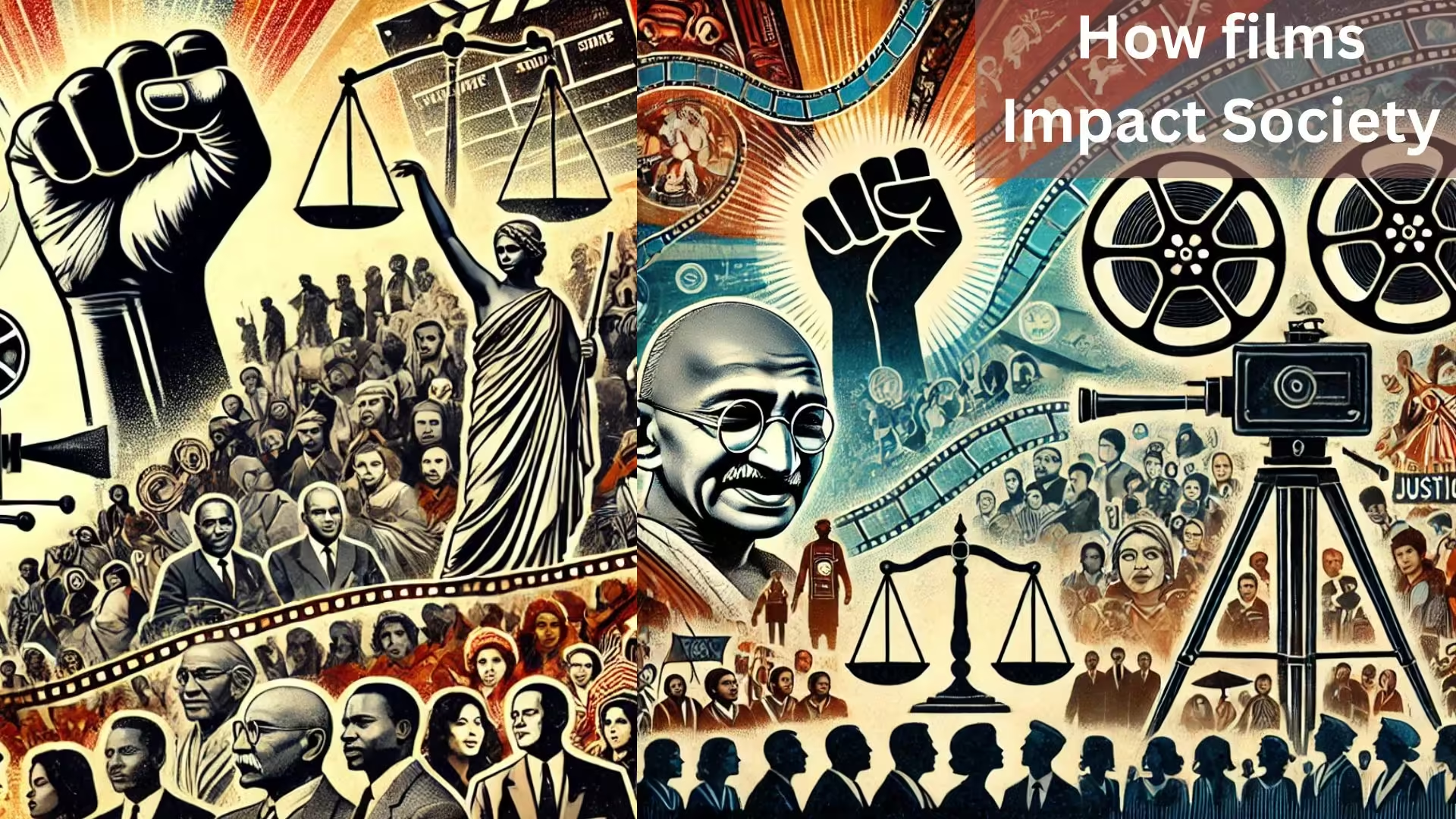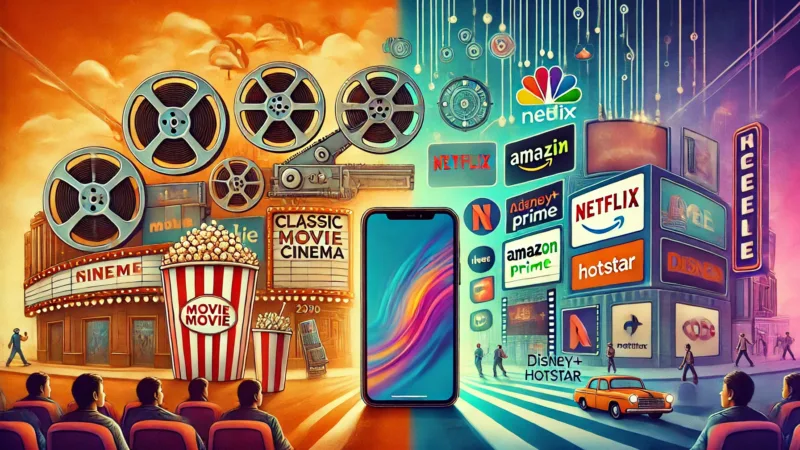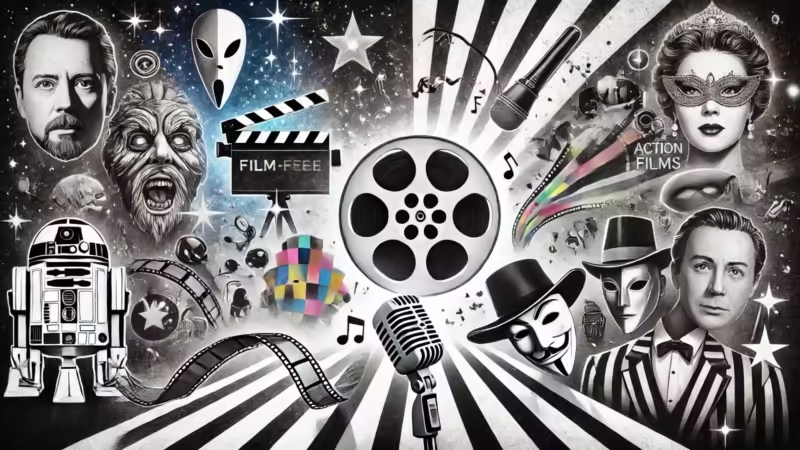Films do more than just entertain—they shape how we think, feel, and interact with the world. Over time, movies have had a huge influence on society. They challenge norms, raise awareness, and even inspire change. Here, we explore how the impact of films on society has grown and evolved over the years.
1. Challenging Norms and Breaking Stereotypes
First of all, films are great at challenging social norms. For decades, movies have broken stereotypes. For instance, films like To Kill a Mockingbird questioned racial inequality. Similarly, Wonder Woman redefined women as strong, independent, and capable.
In fact, films often tell the stories of marginalized communities. This helps to highlight voices that are rarely heard. As a result, movies promote inclusivity and understanding. By showing us different perspectives, cinema helps break down long-standing barriers in society.
2. Raising Social Awareness
In addition to challenging norms, films also raise awareness about critical issues. Many documentaries and films focus on social causes. Take An Inconvenient Truth, for example. This documentary raised global awareness about climate change. Similarly, Philadelphia addressed the stigma around HIV/AIDS.
These films do more than inform—they inspire action. They make us think deeply about the world around us. Viewers are often motivated to support or even join movements after watching these powerful stories unfold.
3. Influencing Politics and Policy
Moreover, the impact of films on society extends into politics. Political dramas and biopics bring historical figures and events to life. Movies like Gandhi and Selma showcase the struggle for human rights. These films remind us of the importance of leadership and justice.
Additionally, films that deal with political corruption and government flaws push for transparency. They influence how we view politicians and can even impact elections or policies. Therefore, cinema can play a role in shaping national conversations.
4. Reflecting and Preserving Culture
Next, films reflect and preserve culture. Movies often capture the customs, values, and traditions of different societies. For example, international films show us stories from cultures we may not be familiar with. Films like Parasite and Slumdog Millionaire have brought global attention to their countries’ social struggles.
Furthermore, films allow cultures to share their stories with the world. They preserve traditions and values for future generations. Through cinema, people from all over the world can connect and understand each other better.
5. Shaping Popular Culture
Interestingly, the impact of films on society is also evident in popular culture. Movies set trends in fashion, music, and language. Think of Breakfast at Tiffany’s. It influenced fashion for decades. Likewise, Pulp Fiction impacted the way we talk and dress.
Films don’t just reflect trends—they create them. What we see in movies often becomes part of our everyday lives. From dance styles to popular phrases, cinema constantly feeds into what’s trendy.
6. Inspiring Emotional Connections
Above all, films connect with us emotionally. By telling stories we can relate to, movies evoke strong emotions. Films like The Pursuit of Happyness and Life is Beautiful move us to tears. Meanwhile, romantic comedies like La La Land inspire joy and hope.
In short, movies make us feel. We empathize with characters and their struggles. This emotional bond allows us to better understand different perspectives and experiences.
7. Encouraging Innovation and Creativity
Films also push the boundaries of creativity and innovation. As technology advances, so do cinematic techniques. Movies like Star Wars and Avatar revolutionized visual effects. Meanwhile, films like The Matrix introduced unique storytelling methods.
Cinema encourages experimentation. Filmmakers are always looking for new ways to tell stories. This innovation impacts not only films but also other industries like gaming and education. The creative energy of cinema spills over into all areas of art and technology.
8. Films as Educational Tools
Finally, films are valuable educational tools. They make learning engaging and visual. Historical dramas, literary adaptations, and science fiction movies bring lessons to life. Films like Schindler’s List and Dead Poets Society are frequently used in schools to teach history, ethics, and literature.
By engaging students in complex topics through visual storytelling, films make education more accessible and relatable.
Conclusion
In conclusion, the impact of films on society is undeniable. From challenging stereotypes to shaping popular culture, cinema plays a significant role in how we see the world. Films raise awareness, inspire empathy, and influence politics. As cinema continues to evolve, its influence on society will only grow stronger.
Internal Links:
- Discover more about Cinematography Basics and how it enhances storytelling.
- Learn about powerful Storytelling Techniques used in films.
External Resources:
- Explore the cultural influence of cinema at BFI’s Impact of Cinema.
- Learn more about how movies shape trends at Vulture.
Want to dive deeper into how films shape the world? Check out more insightful articles at FilmsnMinds. Don’t forget to follow us on Instagram for daily updates!
Impact of Films on Society Cinema and Social Change Movies Influence Society Cultural Impact of Films Film and Society Relationship Role of Cinema in Culture Social Issues in Movies Films Shaping Public Opinion Movies as Educational Tools Cinema and Cultural Reflection


